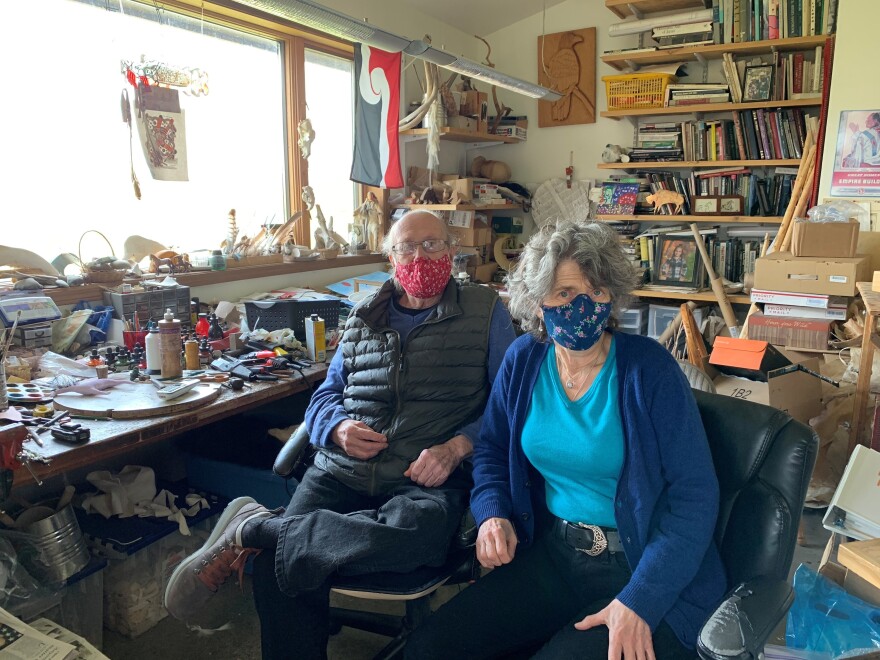Montana has one of the country's lowest coronavirus infection rates and is welcoming tourists back again. Earlier this month, it dropped a two-week quarantine requirement for out-of-state visitors put in place in March. But not everyone is on board with the decision.
The Blackfeet Nation, whose reservation borders Glacier National Park, is maintaining a two-week quarantine order and lodging restrictions for non-residents. Restrictions are set to expire at the end of the month, but tribal leaders have already extended them once and could do so again. That uncertainty has businesses dependent on the roughly $110 million local tourism economy looking for ways to survive until next season.

For more than 25 years, tribal member and owner of the Lodgepole Art Gallery and Tipi Village Darrel Norman has set up about a dozen tipis on his property, providing guests with a unique place to stay as they explore Glacier National Park about 30 miles away.
"Bookings are still coming in and all we can say is we're closed through June," Norman said. "We doubt we'll open the tipi camp after that. Costs, just all the things considered, it would probably not be the wisest thing to do."
He hopes to salvage his season by mostly selling traditional and contemporary Blackfeet artwork in his home art gallery. Still, he understands the tribe's caution in attracting tourists to the reservation.
Tribal leaders say restrictions are protecting reservation residents with limited access to healthcare, particularly elders, who commonly live with their children and grandchildren. So far there have been no confirmed cases of COVID-19 on the reservation.
"We don't want to be the ones who bring in the first case," Norman said.
But tribal member Nathan St. Goddard is pushing the tribe to open back up to visitors sooner rather than later. He owns Johnson's of St. Mary restaurant and campground, perched on a hill overlooking Glacier National Park's currently closed east entrance.
"Our authority is the Tribal [Business] Council and right now, they want to stay closed. And I think it's really frustrating on our end because I personally think social distancing enforcement is more realistic than total shutdown," St. Goddard said.

He adds that if the reservation doesn't open back up to tourists or the east gate to the park doesn't open, he'll likely have to shutter the business his grandfather started 70 years ago for good.
As tourists flow into the west gate of Glacier, tribal leaders and park officials say they are negotiating when the east gate to the park, just outside of the reservation boundary, will open.
Glacier attracted a little more than 3 million people last year. Not all of those people crossed or stayed on the reservation, but Blackfeet COVID-19 Incident Commander Robert DesRosier says even a fraction of those numbers would pose a great risk to local residents. He says it's unclear what it will take to welcome tourists back.
"It's the million-dollar question as far as I'm concerned," DesRosier said. "I can't tell you we're going to open up fifth of July, fourth of July, sixth of July. It's impossible for me to say that."
DesRosier says he understands the tribe's decisions are causing economic pain, but he says it's his job to look at this as an issue of protecting human life and not an economic crisis.
Copyright 2021 Montana Public Radio. To see more, visit Montana Public Radio.


